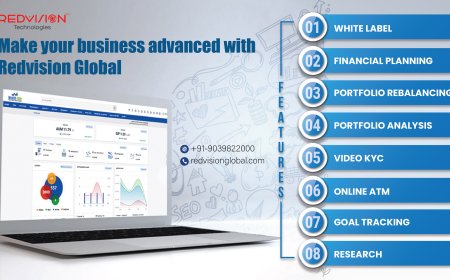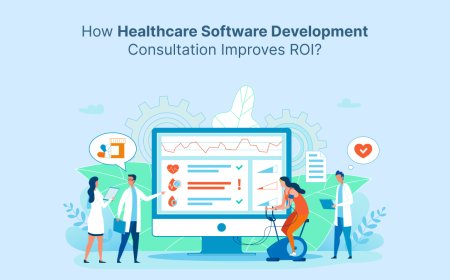Why Cloud ERP Adoption Is Accelerating Across Saudi SMEs
Learn how the accessibility of the cloud ERP systems is one that cannot be compared to the traditional on-premise systems.

Small and medium-sized enterprises (SMEs) are the mainstay of six economic diversification in Saudi Arabia, which is guided by the Vision 2030. The government is currently working toward the promotion of entrepreneurship, innovation, and digitalization, which means that SMEs have become more empowered than ever. Nonetheless, the fast growth comes with operational pressures that cannot be managed by the traditional systems. In this regard, cloud ERP systems are not optional anymore. The rapid pace in which the best erp system in saudi arabia is being adopted by Saudi SMEs is a reaction of the fact that businesses require elastic, cost-efficient, and flexible tools that enable them to prepare themselves and expand effectively.
The Cost Effectiveness as a Technology Driver:
The cost advantage is one of the strongest reasons why SMEs in Saudi Arabia are shifting to cloud ERP. In contrast to legacy ERP applications that demand high upfront costs of servers, infrastructure, and IT resources, cloud ERP is subscription-based. This enables SMEs to enjoy the sophisticated functions without the cost implication of capital investments. Moreover, the service provider maintains and upgrades the system, and there is no necessity to have in-house IT departments and spend money on maintenance. Such financial flexibility is a huge incentive to such resource-sensitive SMEs to adopt the cloud.
Availability and Scalability as Drivers of Growth:
The accessibility of the cloud ERP systems is one that cannot be compared to the traditional on-premise systems. The cloud solutions allow business owners as well as employees to access live data at any time and place. This is particularly important in the growing mobile workforce and decentralised business conditions in Saudi Arabia. It allows smooth coordination whether it is a retail SME that has several outlets or manufacturing unit with scattered operations. Furthermore, the system expands with the business, there is no necessity of overhauling it to accommodate the business or building new infrastructure. Such scalability is essential to SMEs that wish to either expand regionally or internationally without technology constraints holding them back.
Features and Enhancements: Compliance and Localization Features Made Easy:
Among the regulatory requirements that have been implemented in Saudi Arabia include ZATCA e-invoicing and new tax structures. In the case of SMEs, being in compliance and also being in the growth path is challenging. Cloud ERP vendors have started to provide products that are fully localized in Saudi market. Support in the Arabic language to ZATCA Phase 2 preparedness, these systems allow SMEs to be compliant without having to have dedicated legal or IT departments. Moreover, SMEs are able to keep up with compliance risks because cloud ERP systems are also regularly updated to incorporate changes in the regulations, without having to manually update the systems.
Security and Integrity of Data is No Longer an Obstacle:
The issue of security has been the classic hindrance in the migration of operations to the cloud. Nevertheless, the latest generation of hr software in saudi arabia systems gives users high level encryption, access controls, frequent audits and automatic backups light years ahead of what most on premise systems can do. Indeed, in the case of SMEs that do not have a strong cybersecurity system, the implementation of cloud ERP may increase the general level of data protection. Service providers are available 24/7 and have dedicated teams to guarantee that the business data is secure, safe, and retrievable in the event of any unexpected events. This data integrity is also increasing adoption in the industries that deal with sensitive data like healthcare, finance, and legal services.
More Quick and Easy Interfaces:
SMEs do not usually have the resources to deploy systems over long time slots. They require solutions that can be installed within a short time, and they can begin providing value right away. Cloud ERP solutions have shorter deployment periods than the traditional ERP solutions. Modular designs are widely available, meaning that the business can enable the functions they require most without following through on full-scale implementation. Intuitive user interfaces are also part of these platforms, and this reduces the training period of teams. The outcome is a system that will start to pay off in weeks, not months, a very appealing option to growth-oriented SMEs.
Conclusion:
The deployment of cloud ERP among Saudi SMEs is not merely a change in technology but a strategic step to sustainability, operational efficiency and competitiveness in the market. Cloud ERP is no longer a luxury; it is becoming a necessity with digital transformation becoming the new norm and not the exception. Government encouragement, vendor localization and the obvious business advantages will only serve to fuel the cloud ERP wave across the Kingdom.




































